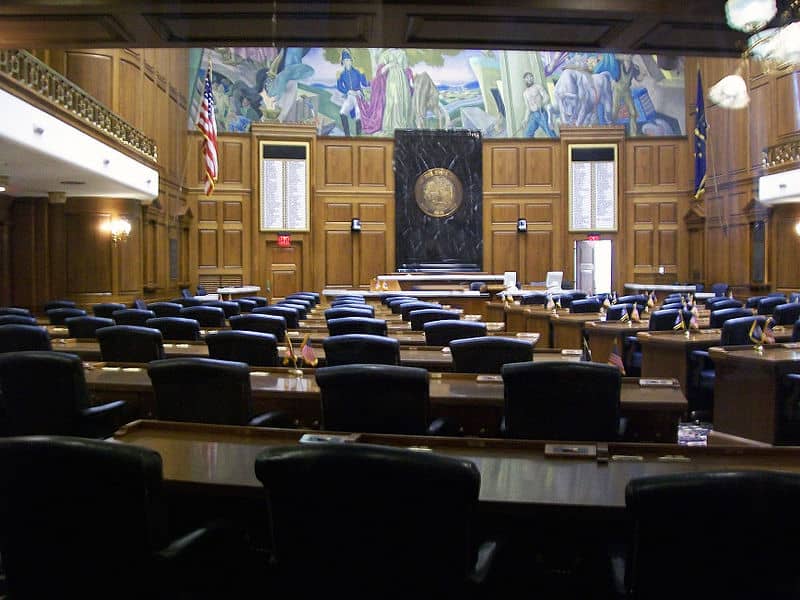Electric vehicle infrastructure finds bipartisan support from Indiana lawmakers
With $100 million in federal funding on the way, Indiana lawmakers are laying the groundwork for a new, statewide electric vehicle-charging network.
The Biden-Harris administration is allocating $5 billion over the next five years to create a nationwide system of charging stations, to help encourage electric vehicle use across the nation.
Rep. Ed Soliday, R-Valparaiso, lead sponsor of a bill outlining how Indiana’s charging network could operate, said the proposal is just a starting point.
“This is an iterative bill, this is not a complete answer to how we’re going to handle electric vehicles,” Soliday explained.
Among other things, the legislation sets standards for pricing at charging stations, and establishes new parameters the state utility commission must consider when approving new charging-station projects.
The measure has bipartisan support in the General Assembly, where it has passed several committees and the House of Representatives with unanimous votes.
The bill also would allow private companies to launch pilot charging networks for public-use electric vehicles, such as school buses. Utilities could recoup the cost of the pilot networks by raising their base charges to customers.
Kerri Garvin, executive director of the nonprofit Greater Indiana Clean Cities, said the pilot programs could streamline bigger projects down the line.
“Pilots allow companies and stakeholders to evaluate the feasibility, design, associated costs and benefits for larger-scale deployments,” Garvin pointed out.
According to the Pew Research Center, electric vehicle sales in the U.S. doubled from 2020 to 2021, and carmakers are planning to put an additional one million electric vehicles on the road before year’s end.
The transportation sector accounts for nearly a third of America’s greenhouse-gas emissions.


4 comments
Utilities could recoup the cost of the pilot networks by raising their base charges to customers. Does this mean that electric bills will be going up for all the customers? Residential, commercial, and industrial.
Yes, just another way you get to subsidize public transportation, Comrade. Isn’t it wonderful?
The real question is why not let the private sector create all the charging stations, just like they did the gas stations? Control. This is all about control. Control over the free market. Control bought with your tax dollars.
Does anyone really think private charging stations have a chance against government subsidized money losers? All this legislation will do is give the government control of charging stations FOREVER.
How much coal, oil, or natural gas need to be burned to generate enough extra electricity to charge up cars that have a limited range and a very expensive battery change??? Electric vehicles are more expensive, cost more, and use more scarce minerals from China to operate in the long run than gasoline fueled vehicles. I don’t remember the government having to fund gas stations, do you? That federal money isn’t free to Hoosiers. We all paid into that fund so the cost is on us all. Let those who wish to be “environmentally virtuous” pay their own way just like the rest of us have to do.
Not to mention the fact that those batteries are NOT environmentally friendly.